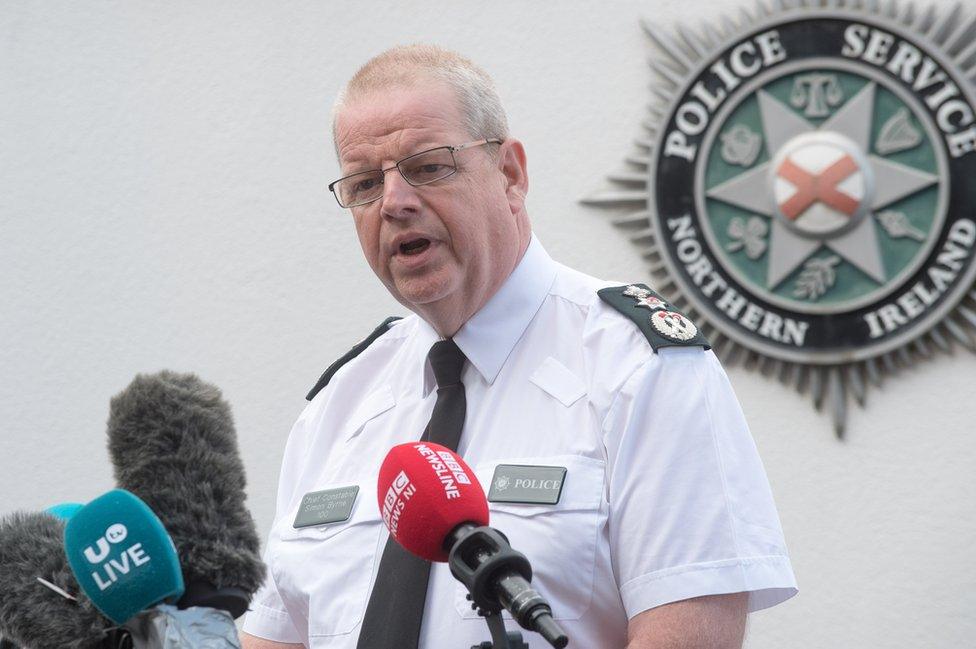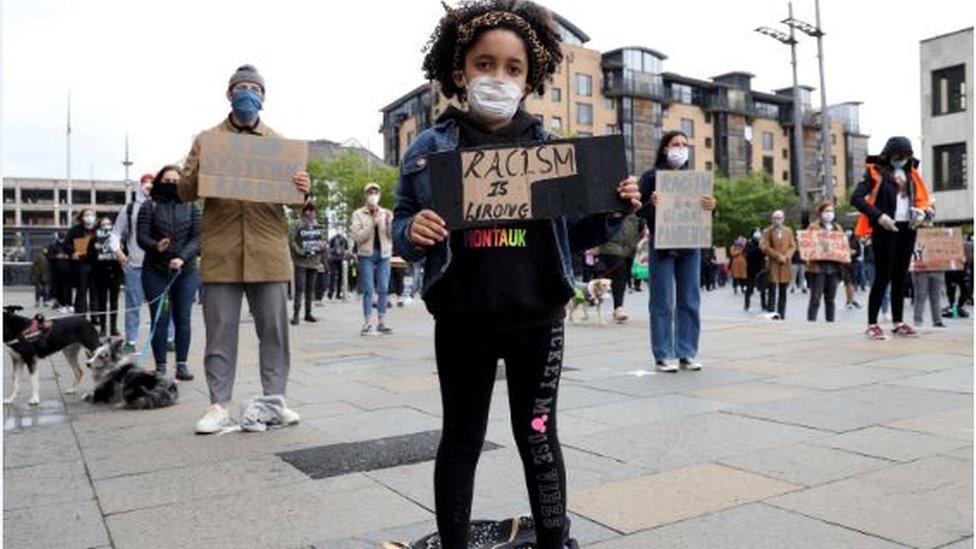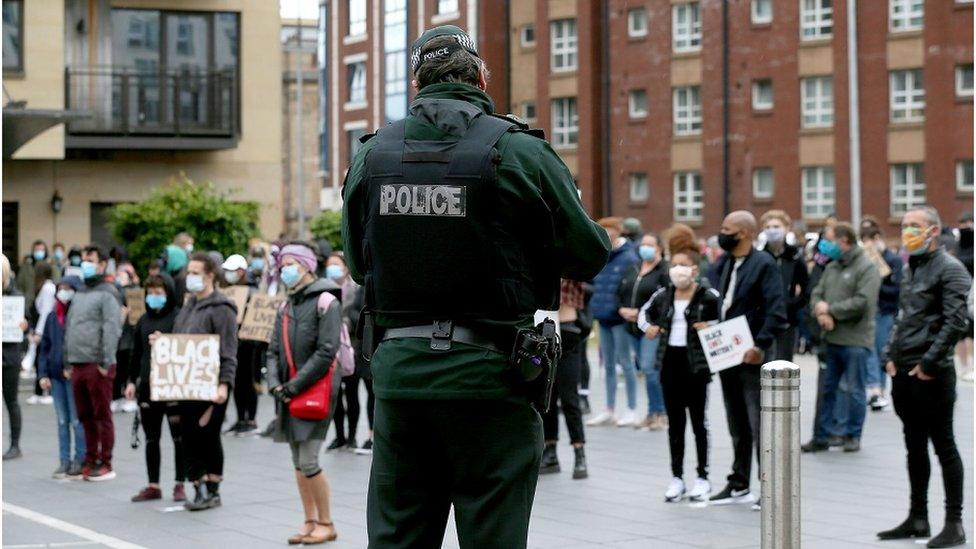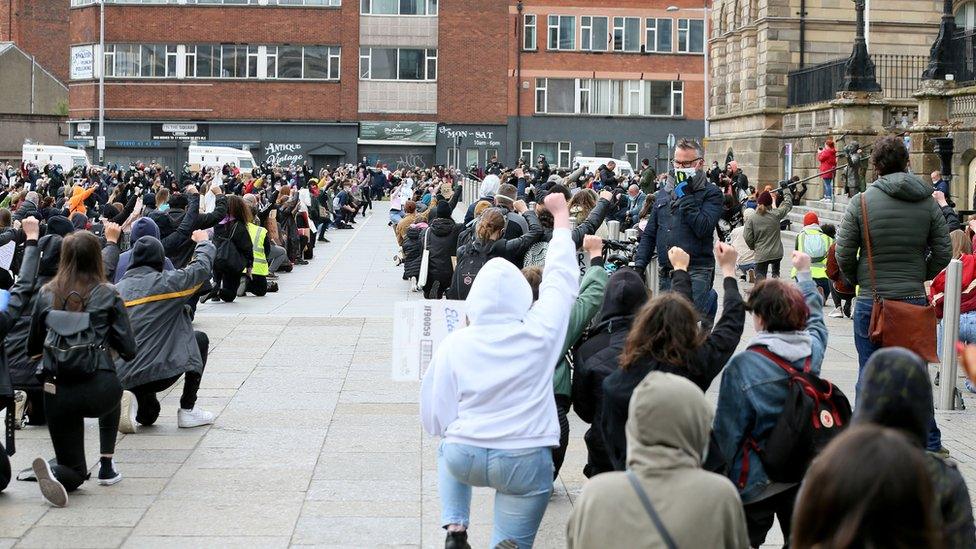PSNI chief 'sorry' over policing at Black Lives Matter protests
- Published

PSNI officers issued 68 fines under Covid-19 regulations at Black Lives Protests in June
Chief Constable Simon Byrne has apologised after the Police Ombudsman found justification in claims the handling of the Black Lives Matter protests was unfair and discriminatory.
A report by Police Ombudsman Marie Anderson stated it was "not intentional and not based on race or ethnicity".
However, confidence in policing among some in minority communities has been "severely damaged".
Mr Byrne said: "The time is right to show some humility and say sorry."
Mrs Anderson launched an investigation after complaints about police actions on 6 June, when about 70 fines were handed out at demonstrations in Belfast and Londonderry.

Chief constable Simon Byrne has apologised after the policing of the Black Lives Matter protests
In contrast, no £60 fixed penalty notices were issued at a Protect our Monuments rally in Belfast on 13 June - those attending included loyalists and military veterans.
Mrs Anderson said police had "failed to fully understand" the human rights of those at the Black Lives Matter (BLM) events to be able to protest peacefully.
Her report found officers had not engaged in any harassment as some had claimed.
"The differential treatment by PSNI of protesters on 6 June when compared with those attending Protect Our Monuments on 13 June gave rise to claims of unfairness and discrimination against those persons who organised and attended the 'Black Lives Matters' protests," the report stated.
"These concerns are in my view cogent, have substance and are justified in the circumstances.
"I believe that this unfairness was not intentional. Neither was it based on race or ethnicity of those who attended the event."
On the issue of fines and prosecutions, the ombudsman said they should be reviewed.

"A number of fines issued at the Guildhall Square and Custom House Square have now been paid by the recipients.
"My investigation has established that many of these contain inconsistencies and errors and therefore their validity is questionable."
Parts of her report echoed one from the Policing Board published in November, which questioned whether the PSNI approach had been unlawful.
The PSNI has already announced it is establishing a task force to help rebuild relations with black, Asian and ethnic minority groups.
'I am sorry'
In a statement, Mr Byrne said: "We tried our best to respect the public health requirements of the Northern Ireland Executive to save lives and at the same time deal with public outcry triggered by this awful death [of George Floyd].
"We operated within the legal framework available to us at the time, but the ombudsman is clear that whilst unintentional, we got that balance procedurally wrong."
He added: "It is clear to me that some members of the Black and Minority Ethnic Community have been frustrated, angry and upset by our policing response and our relationship with them has suffered.
"For that I am sorry, and I am determined in that regard to put things right."
Patrick Corrigan, from Amnesty International, said the report was "deeply critical".
He called for a "fundamental reassessment" of how the PSNI approaches the right to protest and the police's relationship with black and minority ethnic communities.
- Published6 June 2020

- Published12 November 2020

- Published8 June 2020
